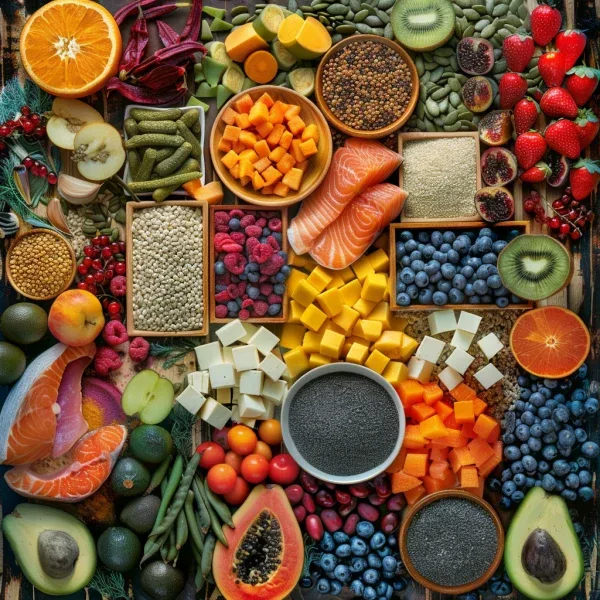by Nadia Sinclair

Your gym sessions may be intensive and frequent, but if your diet isn’t nutritious and balanced, your efforts might not yield optimal results. We understand your hectic schedules and the challenge of prioritizing nutrition. That’s why today we are unraveling 30 expert-approved and scientifically backed tips for healthier eating habits.
Incorporate Healthy Habits for Efficient Fat Loss
1. Masticate your food carefully. A sufficient number of bites can help decrease your hunger and food intake.
2. Sync calorie intake with activity levels. Plan your meals considering your exercise and work schedules and adjust your carb and energy requirements accordingly.
3. Opt for ‘volume foods.’ Green veggies including spinach, lettuce, cucumber, and cabbage offer satiety with fewer calories.
4. Choose your plates wisely. Studies have shown that opting for white plates over colored ones can reduce food intake.
5. Add spice to your meals. The capsaicin in chili peppers has been found to support feelings of fullness.
6. Sensibly taper your calorie intake. A drastic cut leads to energy deficiency and hampers metabolism rates.
7. Diet to aid sleep. Foods rich in tryptophan, a sleep hormone precursor, aid good sleep which is crucial for weight loss.
8. Experiment with one meatless day in a week, both for health benefits and the environment.
Prompt Healthy Habits for Overall Good Health
9. Keep an eye on your meat intake. Swap it with soy or plant-based proteins occasionally.
10. Incorporate colors in your diet. Each colored fruit or veggie represents unique nutrients.
11. Fill your plate with fiber. It helps in reducing the risk of heart disease, diabetes, and certain types of cancer.
12. Consume oily fish twice a week for overall cardiovascular health.
13. Always have one more vegetable than you planned. They add nutrients and are easy to prepare.
14. Balance your intake. Supplementing your diet with Vitamin D during winters can boost the immune system.
15. Limit your intake of sugary sports drinks unless you are in endurance sports.
Adopt Healthy Eating Habits for Building Strength
16. Find leucine. This essential amino acid stimulates muscle protein synthesis.
17. Learn about post-exercise nutrition. Protein intake after exercise promotes recovery and builds muscles.
18. Try beetroot juice. It increases reps in squats and bench presses.
19. Have a balanced post-workout shake. You need 25-30 grams of protein after a weight session.
20. Sleep is vital for recovery and protein synthesis.
21. Try plant proteins for muscle recovery and inflammation management.
22. Eat more vegetables. They reduce inflammation and support gut health.
Infuse Healthy Habits for Endurance
23. Protect your joints with glucosamine. It’s found in shellfish and supplements and can help with stiff joints.
24. Opt for nitrate-rich foods. They improve performance in endurance sports.
25. Keep B vitamins in check. They help break down food into energy and manage stress.
26. Use a carb-based drink during prolonged workouts.
27. Replace electrolytes you lose during intensive exercises.
28. Include iron-rich foods in your diet. It’s essential for endurance performance.
29. Supplement long training with a high-GI source of carbohydrates for instant energy.
30. Check your carb intake. Your requirements depend on your training duration.
Avoid high-fiber food before any prolonged event and carb-load 48 hours prior. Also, always ensure your carbohydrate tolerance before race day.
Nutrition, workout, healthy eating habits, diet tips, food intake, calorie intake, volume foods, meatless day, balanced intake, post-workout nutrition, endurance training
Leave a Reply